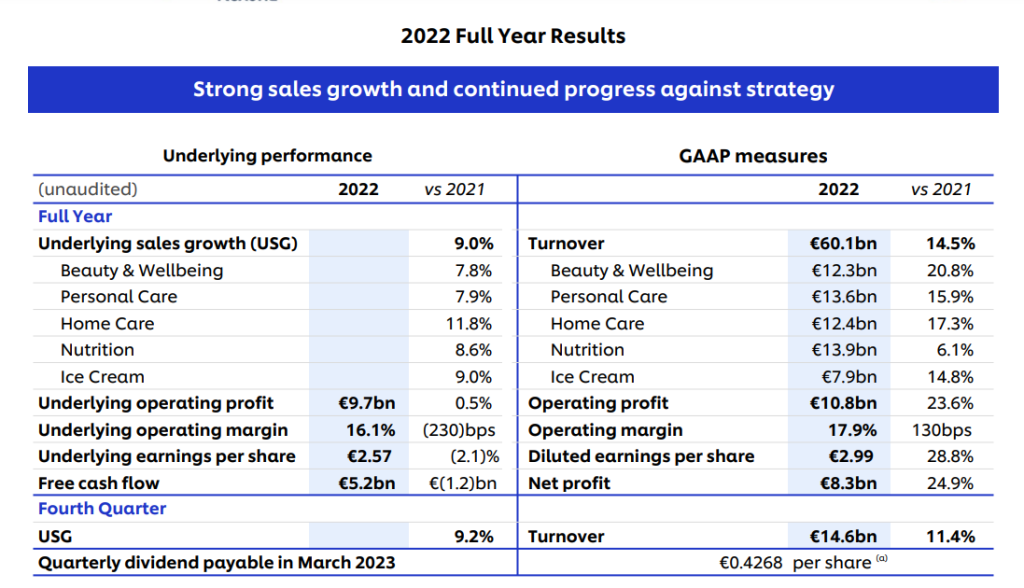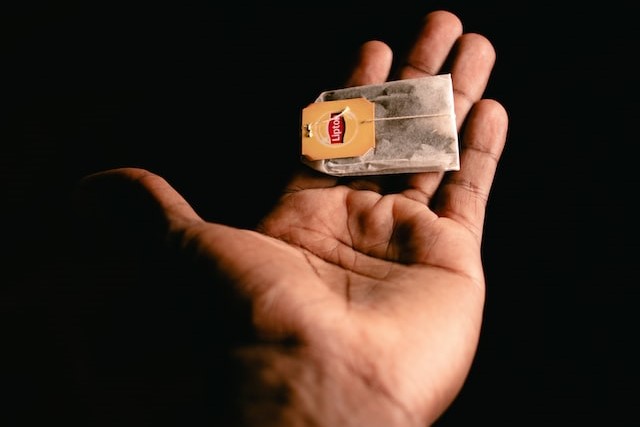Before we dive deep into the PESTEL analysis, let’s get the business overview of Unilever. Unilever is one of the world’s leading suppliers of fast-moving consumer goods in food, home care, and personal care.
Founded in 1929 due to a merger between the British soapmaker Lever Brothers and the Dutch margarine producer Margarine Unie, Unilever has become a global powerhouse in the FMCG (Fast Moving Consumer Goods) sector.
Here is an overview of Unilever’s business:
- Products and Brands: Unilever’s portfolio includes a wide range of products across diverse categories. Some of its most recognizable brands include Dove, Axe/Lynx, Ben & Jerry’s, Lipton, Magnum, Hellmann’s, Knorr, Sunsilk, and Surf, among others.
- Global Presence: Unilever operates in over 190 countries, and its products are used by billions of consumers daily. The company’s operations are often divided into regions: Europe, the Americas, Asia, Africa, and the Middle East.
- Business Segments: Unilever’s business can be broadly categorized into three main segments:
- Beauty & Personal Care: This is the largest segment and includes skincare, haircare, deodorants, and oral care products.
- Home Care: This includes laundry detergents, household cleaning products, and related offerings.
- Foods & Refreshment: This segment comprises a diverse range of food products, including soups, bouillons, sauces, snacks, mayonnaise, salad dressings, spreads, and ice cream.
Financial Performance of Unilever
Turnover increased 14.5% to €60.1 billion, and the underlying operating profit was €9.7 billion, up 0.5% versus the prior year.

Business Strategies that set FMCG giant “Unilever” a class apart
Here is the SWOT analysis for Unilever
A SWOT analysis is a strategic planning tool used to evaluate the Strengths, Weaknesses, Opportunities, and Threats of a business, project, or individual. It involves identifying the internal and external factors that can affect a venture’s success or failure and analyzing them to develop a strategic plan. In this article, we do a SWOT Analysis of Unilever.
SWOT Analysis: Meaning, Importance, and Examples
Strengths
Unilever is a well-established company with a long history of success in the consumer goods industry. Here are some of its strengths:
- Diverse portfolio: Unilever has a diverse portfolio of products across different categories, which helps the company to balance risks and opportunities across its business.
- Strong brand recognition: Unilever has a strong brand portfolio with many well-known and trusted brands in different markets, which helps the company to maintain customer loyalty and drive sales.
- Global reach: Unilever operates in over 190 countries, making it one of the largest consumer goods companies in the world, with a strong presence in emerging markets.
- Sustainable practices: Unilever has a strong commitment to sustainability and social responsibility, which is reflected in its operations, supply chain, and products. This commitment to sustainability helps differentiate the company and appeal to consumers increasingly interested in environmentally friendly and socially responsible products.
- Innovation: Unilever invests heavily in research and development, leading to innovative product offerings that help to drive growth and differentiate the company from its competitors.
- Strong financial performance: Unilever has a strong financial performance, with consistent revenue growth and profitability, which enables the company to invest in its business and return value to shareholders.
Weaknesses
Despite its strengths, Unilever has some weaknesses that can impact its business. Here are some of them:
- Dependence on a few key markets: Unilever significantly depends on a few key markets, such as Europe and North America, which can expose the company to economic downturns and changes in consumer preferences in these regions.
- Exposure to currency risks: As a global company, Unilever is exposed to currency risks due to fluctuations in exchange rates. This can impact the company’s revenue and profitability.
- Complexity of operations: Unilever’s diverse portfolio of products and global operations (Unilever owns 400+ brands globally) can make managing the company’s operations challenging, leading to increased costs and lower efficiency.
- Limited presence in some markets: Despite its global reach, Unilever has a limited presence in some markets, which can limit the company’s growth potential in these regions.
- Heavy reliance on distributors: Unilever relies heavily on distributors to sell its products, which can impact the company’s ability to control the distribution of its products and can make it challenging to maintain consistent brand positioning and pricing.
- Intense competition: The consumer goods industry is highly competitive, with many well-established companies vying for market share. This can make it challenging for Unilever to maintain its market position and drive growth.
Opportunities
Unilever has various opportunities to grow and expand its business. Here are some of them:
- Expansion in emerging markets: Unilever can leverage its global presence to expand its operations in emerging markets such as Asia, Africa, and Latin America, with a growing middle class and increasing demand for consumer goods.
- Innovation in sustainable products: As consumers become more environmentally conscious, there is an opportunity for Unilever to innovate and develop more sustainable products that appeal to consumers looking for eco-friendly and socially responsible products.
- Digital transformation: The use of digital technology in consumer goods is increasing rapidly, and there is an opportunity for Unilever to leverage technology to improve its operations, customer engagement, and supply chain management.
- Mergers and acquisitions: Unilever can explore mergers and acquisitions to expand its product portfolio, enter new markets, and acquire new capabilities.
- E-commerce: The growth of e-commerce allows Unilever to reach consumers directly, bypassing traditional retailers and creating a direct-to-consumer business model.
- Health and wellness: As consumers become more health-conscious, there is an opportunity for Unilever to expand its offerings in the health and wellness category, including products such as nutritional supplements and healthy snacks.
Threats
Unilever faces various threats that can impact its business. Here are some of them:
- Intense competition: The consumer goods industry is highly competitive, with many established companies vying for market share. Unilever faces strong competition from companies such as Procter & Gamble, Nestle, and Kraft Heinz, which can impact its sales and profitability.
- Economic downturns: Unilever is exposed to economic downturns in different regions, which can impact its sales and profitability. This is particularly relevant in regions where Unilever has significant dependence.
- Changing consumer preferences: Consumer preferences can change rapidly, and Unilever needs to adapt to these changes to remain competitive. Failure to do so can result in reduced demand for its products.
- Regulatory risks: Unilever operates in various countries and is subject to different regulations, impacting its operations and profitability. Changes in regulations can increase costs and create compliance challenges.
- Supply chain disruptions: Unilever’s operations depend on a complex supply chain, which can be impacted by natural disasters, geopolitical risks, and other events, resulting in supply chain disruptions and increased costs.
- Currency fluctuations: Unilever operates in various countries and is exposed to currency fluctuations, which can impact its revenue and profitability, particularly in regions with significant dependence.











